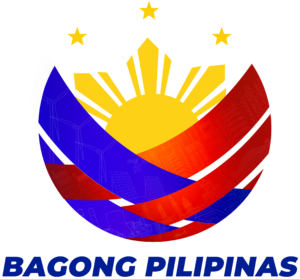RAISING BONIFACIO
by Peter Jaynul Uckung
Like an angry bolt of lightning, he electrified the humid colonial air of the Philippines then in the iron grip of Spain, and brought on the liberating storm of the revolution.
Born on November 30, 1863, Andres Bonifacio, all fired up with ideas of reform and salvation, joined an organization established by Jose Rizal, the La Liga Filipina. Seeking reforms to better the country, the La Liga was extinguished when its founder and guiding light, Rizal, was deported to Dapitan. Apparently the Liga was considered a threat by the Spanish colonial government, which it was not. In so doing, it created the very thing it was afraid of- a covert organization vent on enforcing change by means of a revolution.
Only July 7, 1892, the Katipunan was founded. And the Spanish colonial government came crushing down like a house of cards.
Today the memory of Bonifacio evokes a feeling of intense nationalism and of courage against all odds. Bonifacio represents the unsheathed bolo of a long-suffering people pushed to the walls of social decadence. A people relegated to the lowest possible degree of human existence could only endure so much. A long abused society is bound to produce a leader, picked from among the picked, to spearhead the retaliatory strike of the aggrieved. Such a leader always comes from the masses, for it is the masses who always bear the brunt of social misery born out of willful misgovernance. It is those who were dwelling in the darkest of time, who knew the foulest stench of slavery and bondage, who were willing to gamble the very breathe of life to see the light of freedom and economic salvation.
Bonifacio stood up, after Rizal was taken out. The banishment of Rizal to Dapitan ended the concentrated clamor for reforms. Like a field of makahiya being trampled, most of the Filipino men of reasons folded up. Not Bonifacio.
In the shadows, hidden by the haze of carefully concocted ruse to mislead the authorities, the Katipunan was founded, recruits fielded, and principles espoused. Reform was no longer a target, absolute freedom by revolution was. Bonifacio was the main gear of the planned revolution. Losing the battle for reforms , the masses in a supreme effort to extricate itself from colonial social degradation finally produced one final ace, the Supremo Andres Bonifacio.
He united the disgruntled, laid down the foundation of a truly Filipino government and thought of a plan to acquire arms, money and support of the upper class. With the idea of freedom firmly established as the goal of the struggle, Bonifacio, the man from the masses, was set aside, arrested, convicted of the crime of sedition, and executed. No, not by Spaniards, but by fellow Filipinos, some of whom he inducted into the Katipunan. Today, Bonifacio, still ever the enigmatic hero of the Revolution, is idolized, lionized and immortalized more than most of his contemporaries.
Will we ever need him again? There is a tingling little bell of alarm in this era of globalization to warrant the return of men like him. Globalization may be a process of providing many opportunities, but this must be directed. Without direction, it may become a destructive process. The first signs of such destruction are already starting to show.
Globalization is governed by limited system of governance enforcing the right of property while ruling that workers’ militant stand for their rights are absolutely against the law. Multinationals often mask as agents of prosperity and democracy in the newspapers, even as they subvert it at the workplace.
Globalization does not assure freedom, social justice and the rule of law. What it guarantees are markets in which to pursue private interests, not the common interest. Government used to protect the common interest, but with the growth of global capital markets, the power of the state is shrinking. Since capital must be enticed, not discouraged by rules and regulations, the government caters to its demand, often to the detriment of social goals.
Theoretically, our entrance to the global market will provide us with economic opportunities; the truth is it is the more industrialized, more advanced countries which the global market favors to further increase profits and prosperity. The inequality of global income between rich and poor countries is so glaring. Today according to the International labor Organization, the rich countries account for about 60% of the world’s income but only 15% of the world’s population.
The speed in which capital markets grow in developing countries, such as ours, is creating an era of takeover by larger foreign firms on the local business sectors, adding to the divergence of wealth from here to there. Shades of colonialism. Moreover, problem on pollution, degradation of ecosystems encouraged by a spurred industrialization drive, undermine the foundation of sustainable development of Filipinos.
Until the values to regulate the global markets is clarified, particularly the social, moral and ethical ones centered on the dictum that all people are born equal in their rights and opportunities, the Philippines will join the global market and promptly race to the bottom of the lot.
Misery and decadence, old Filipino chums, will then necessitate the resurrection of Bonifacio.

